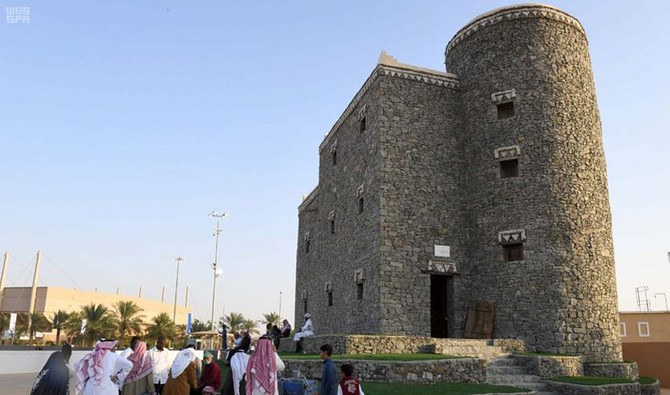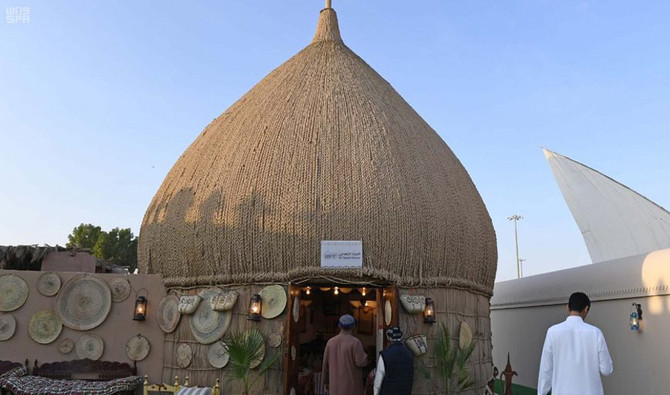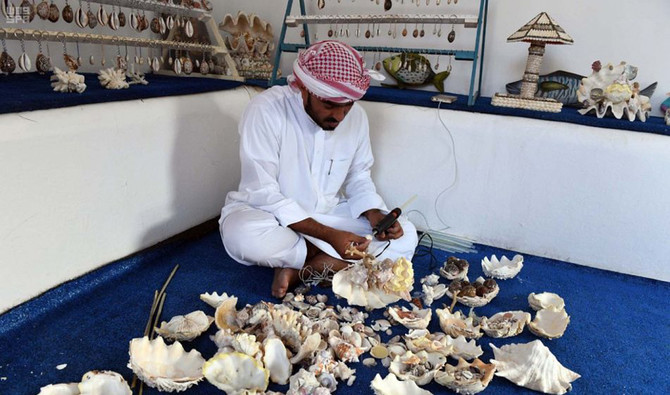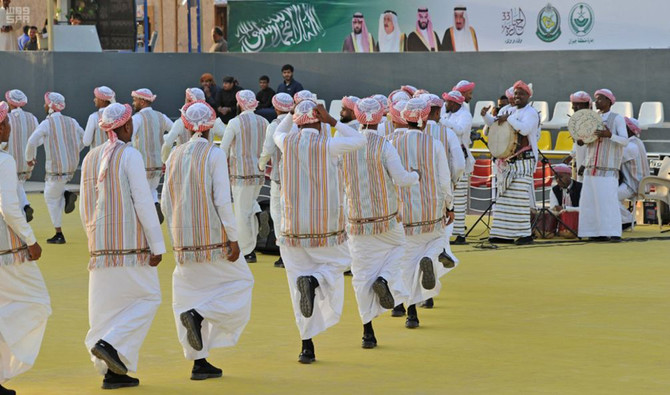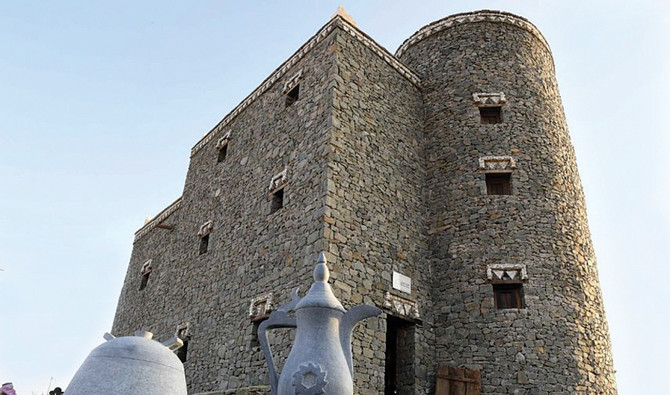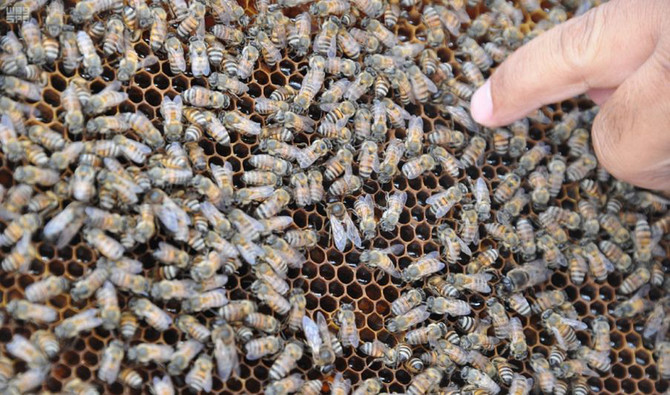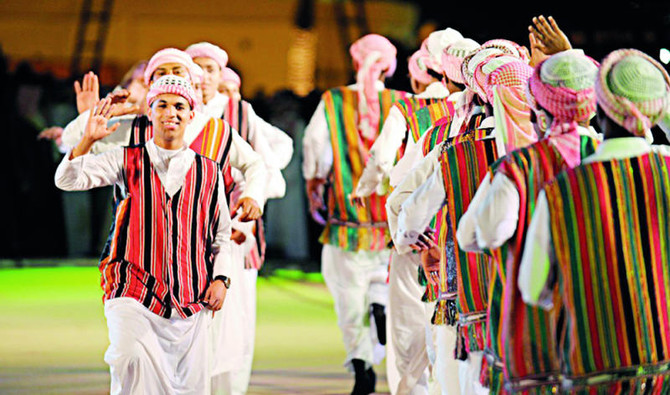JEDDAH: The Jazan Heritage Village is one of the highlights of the 33rd national heritage and culture festival in Janadriyah. It presents the changing environments that characterize each of the historical periods in the Jazan region, exhibiting its rich history and prosperous present.
The Jazan Village is updated every year to offer visitors an informative and valuable display about the region, especially about its crafts and heritage. Working with the governor of Jazan Region, Prince Mohammed bin Nasser bin Abdul Aziz, and his deputy, Prince Mohammed bin Abdul Aziz bin Mohammed bin Abdul Aziz, it strives to make the experience as authentic as possible.
One aspect of the region’s heritage that attracted visitors this year, according to the Saudi Press Agency (SPA), was the section on the traditional houses of Tihamah, on the Red Sea coast.
These houses are mainly found in villages, and are built from raw materials such as hay, mud, wood and rope, topped with decorated colored roofs.
Another of the pavilions showcases the houses found on Farasan Island. They are characterized by their artistic decoration, white walls, and decorated roofs and upper windows. In the houses in the mountainous parts of the region, which rise to several storys, visitors can see that one floor is used to store essential tools and food.
The cultural exhibition in the village sheds light on the history of the region’s environment, with a range of displays such as on clothing and pottery.
The market in the heritage village is another big attraction, where traditional skills in handicrafts and professions from the region’s past are on display. Visitors can watch how Jazan’s residents worked in the past by adapting the natural resources according to their needs, for example making pottery out of the local clay.
The Jazan food pavilion attracts a constant stream of visitors eager to learn how the traditional dishes are prepared. They can also taste the different foods at the restaurant in the village. It uses agricultural and animal products, as well as authentic crockery, and showcases the most famous dishes of the region.
The village also seeks to showcase the work women are doing in the region and stress their active and influential role in all fields. Visitors can interact with the families working in the village in the traditional manner, watching how they make clothes, perfumes, aromatic plants, dishes, jewelry and accessories.
In the main square of the village, cultural, poetry and heritage nights are organized, along with games and dances, in addition to folklore shows from Bahrain, Oman, and the UAE.
These activities have attracted a large number of visitors to the square in previous years, and this year is no exception. Legends Mohammed Abdo and Rashid Al-Majid will also perform at the festival.
An application has been launched to offer visitors information through explanatory maps about all the pavilions, daily visits, and key forums.
The addition of cinema to this edition of the festival aims to acquaint visitors to the region about its components and treasures in various areas.
A series of documentaries and tourist features will be awaiting visitors to offer them a balanced view of Jazan’s rich cultural heritage and the renaissance and development journey the region is witnessing under the leadership of King Salman and his crown prince.
The shows will feature a series of films produced by the discovery Jazan team about the Al-Fatihah Valley, Mawhed village, the Duqm Mountain, Al-Hareed fish festival, and Lajab mountain.
The movies will be shown every day from 4:30 p.m. to 10 p.m., and on a daily basis during the event.


